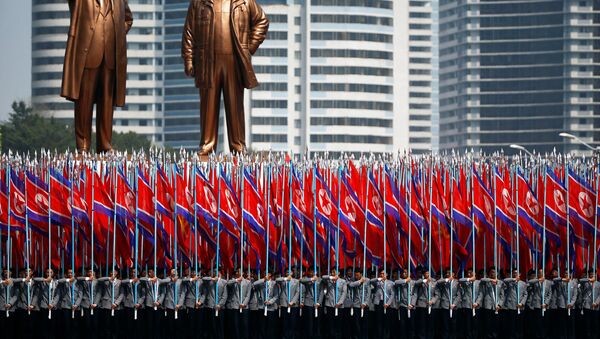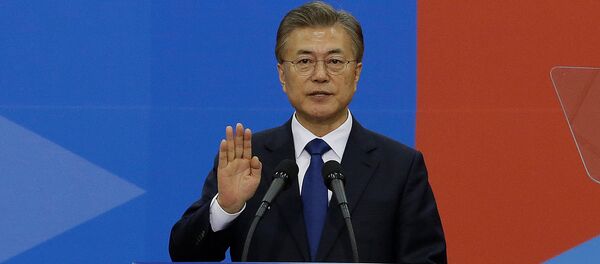The center-left president favors engagement with the North to bring it to the negotiating table, rather than the hard-line stance taken by the conservative government of his ousted predecessor Park Geun-hye.
Unauthorized contacts with North Koreans or visits to the North are punishable by jail terms in the South. But the South's Unification Ministry gave the green light to a request by the Korean Sharing Movement.
"The government's stance is that it should remain flexible in handling civilian exchanges such as humanitarian aid as long as they don't compromise the international sanctions regime against the North," ministry spokeswoman Lee Eugene told reporters.
The decision comes even as tensions remain high after North Korea test-fired this month its longest-range ballistic missile yet.
Lee stressed that Seoul will remain firm in addressing the North's nuclear and missile threats.
The Korean Sharing Movement seeks to supply malaria tablets for North Koreans living near their shared border, which would also help prevent the mosquito-borne disease spreading to the South, she added.
Moon, who advocates dialogue with Pyongyang unlike his two conservative predecessors, said in his inauguration speech this month that he was willing to visit Pyongyang "in the right circumstances" to defuse tension.
But he slammed a subsequent missile launch as a "reckless provocation."
Separately on Friday, Chinese Foreign Minister Wang Yi said the use of force on the Korean Peninsula would only worsen the situation, and China was expecting South Korea would make efforts to resume talks with North Korea.
Wang, giving a news briefing jointly with his Russian counterpart Sergei Lavrov, also said that Beijing and Moscow were calling on North Korea to respect UN resolutions adopted with regards to Pyongyang's nuclear program.
This article was first published in the Global Times.



